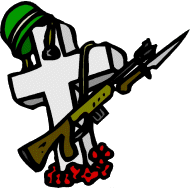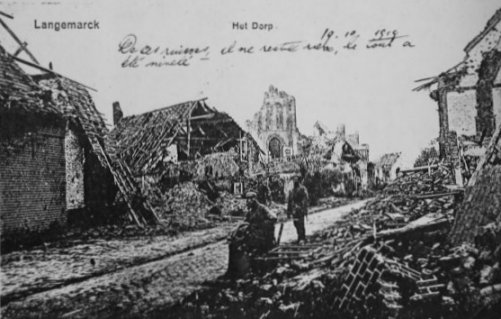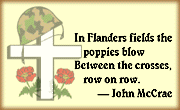|
|
"Total Destruction"
A Postcard Describing
The Aftermath of World War One

My Dad's First Hand Account
My parents kept a drawerful of old postcards which my eldest sister, Marie-Claire, carefully sorted through a few years ago and copied into a "book" for all of us. One postcard my father sent home to Papa Leyder (my father's name for his Uncle Charles, who had adopted him) is so vivid that it makes an impression on me each time I read it. It was written at Langemarck in Flanders on the 19th October 1919 and is reproduced below. My father wrote in French and this translation into English was done by my sister.
Marcel



"My Dear Papa,
I took the 7.40 train this morning arriving at Ypres shortly after 10. No words can describe the destruction - not a house remains standing and the few inhabitants who are there live in wooden houses. After visiting the ruins, especially the 'Alle de la Cathédral' and of the 'Halle aux draps' (I don't remember the exact name) which will be kept intact, I went to St. J. Langemarck passing through no man's land. A desert. The soil completely turned over, everywhere shell holes and unexploded shells, torn and burnt trees, wrecked tanks, scrap-iron of all kinds and for kilometres trenches after trenches turned upside down. As a matter of fact only the road can be used - cars topsy-turvy everywhere; one cannot venture into the country side without risking a fall in a hole or being caught in barbed wire. English soldiers are still stationed here, looking for those reported missing. It appears that one still finds the dead by hundreds. One can say that all along the front it is total destruction.
Kisses Marcel"


Lieutenant Colonel John McCrae, MD was born in 1972 at Guelph, a city in south-eastern Ontario, Canada. He studied medicine at the University of Toronto and graduated in 1898. In 1914 he enlisted in the medical corps of the Canadian Army. He died on 28th January, 1918, in Boulogne, France, from pneumonia complicated by meningitis. "In Flanders Fields", reproduced in full below, is his most famous poem.
In Flanders Fields
In Flanders fields the poppies blow
Between the crosses, row on row,
That mark our place; and in the sky
The larks, still bravely singing, fly
Scarce heard amid the guns below.
We are the Dead. Short days ago
We lived, felt dawn, saw sunset glow,
Loved, and were loved, and now we lie
In Flanders fields.
Take up our quarrel with the foe:
To you from failing hands we throw
The torch; be yours to hold it high.
If ye break faith with us who die
We shall not sleep, though poppies grow
In Flanders fields.
|
To read more about the making of this famous poem, go to
"John McCrae's Poppies in Flanders Field"
a page on Rob Ruggenberg's excellent website on "The Heritage of the Great War"
------------
To find out more about John McCrae himself, read
The Story of John McCraea page on Guelph Civic Museum Website
(In each case, close window to return to this page)

A Field of Poppies
![A field full of red poppies. [Resized - Original Item: 3020948.jpg © ClipArt.com]](poppyfield.jpg)
Poppies grow in profusion on ground which has been disturbed. This was why the Flanders landscape was covered by them
after the shelling of World War One.


Another poem by John McCrae
Disarmament
One spake amid the nations, "Let us cease
From darkening with strife the fair World's light,
We who are great in war be great in peace.
No longer let us plead the cause by might."
But from a million British graves took birth
A silent voice -- the million spake as one --
"If ye have righted all the wrongs of earth
Lay by the sword! Its work and ours is done."
|

|
Visit This Page On My Main Site
for a touching and very interesting World War One 'Poem' |
|
Little Wet Home In A Trench
|
This is a parody on the 1911 song, Little Grey Home In The West, (a tune used by my aunt). I have recently discovered that the original lyrics to Little Wet Home In A Trench were written in 1915 by Tom Skeyhill, an Australian signaller serving in Gallipoli, [see my Correction Page for full details]. This version, sent to me by Jean Bruce, was in the possession of John Bruce, an older brother of her father-in-law, and a Canadian soldier serving in the 29th Vancouver Battalion, also known as "Tobin's Tigers". |
Copyright © 2001-2005 Tessa Steer - All Rights Reserved Worldwide
|
|
|
![A field full of red poppies. [Resized - Original Item: 3020948.jpg © ClipArt.com]](poppyfield.jpg)
